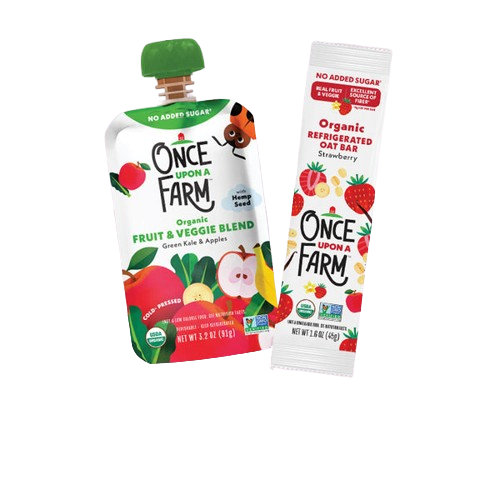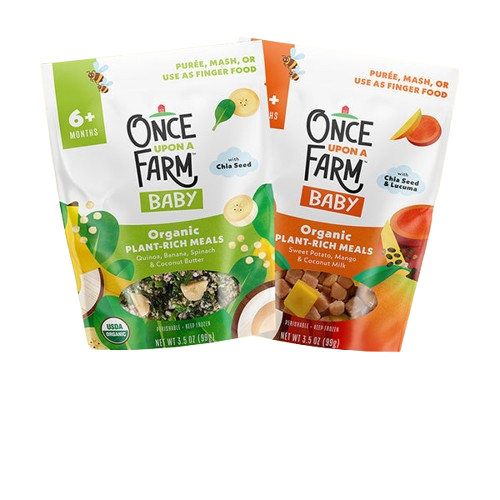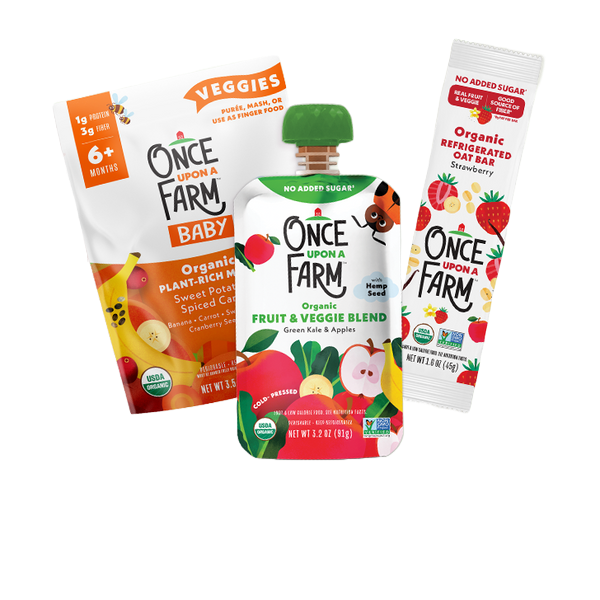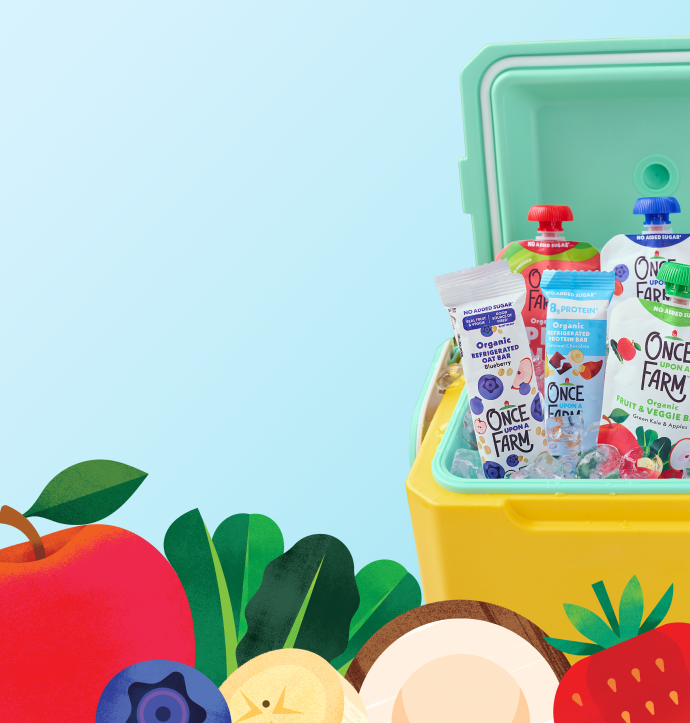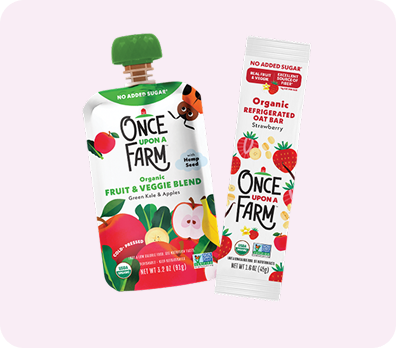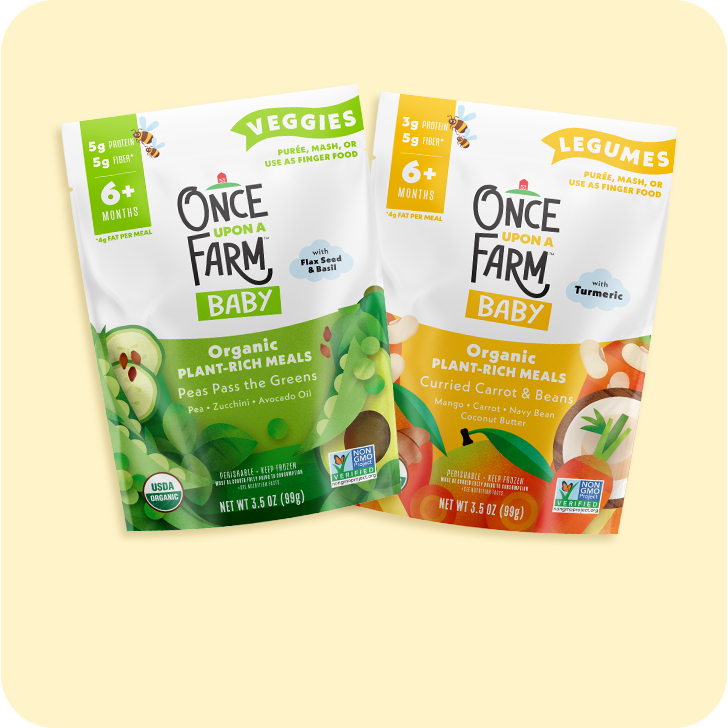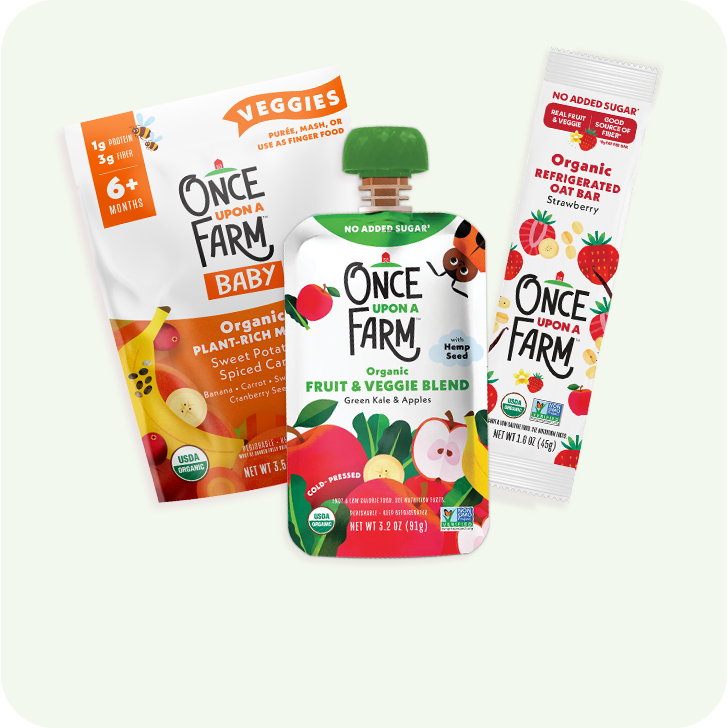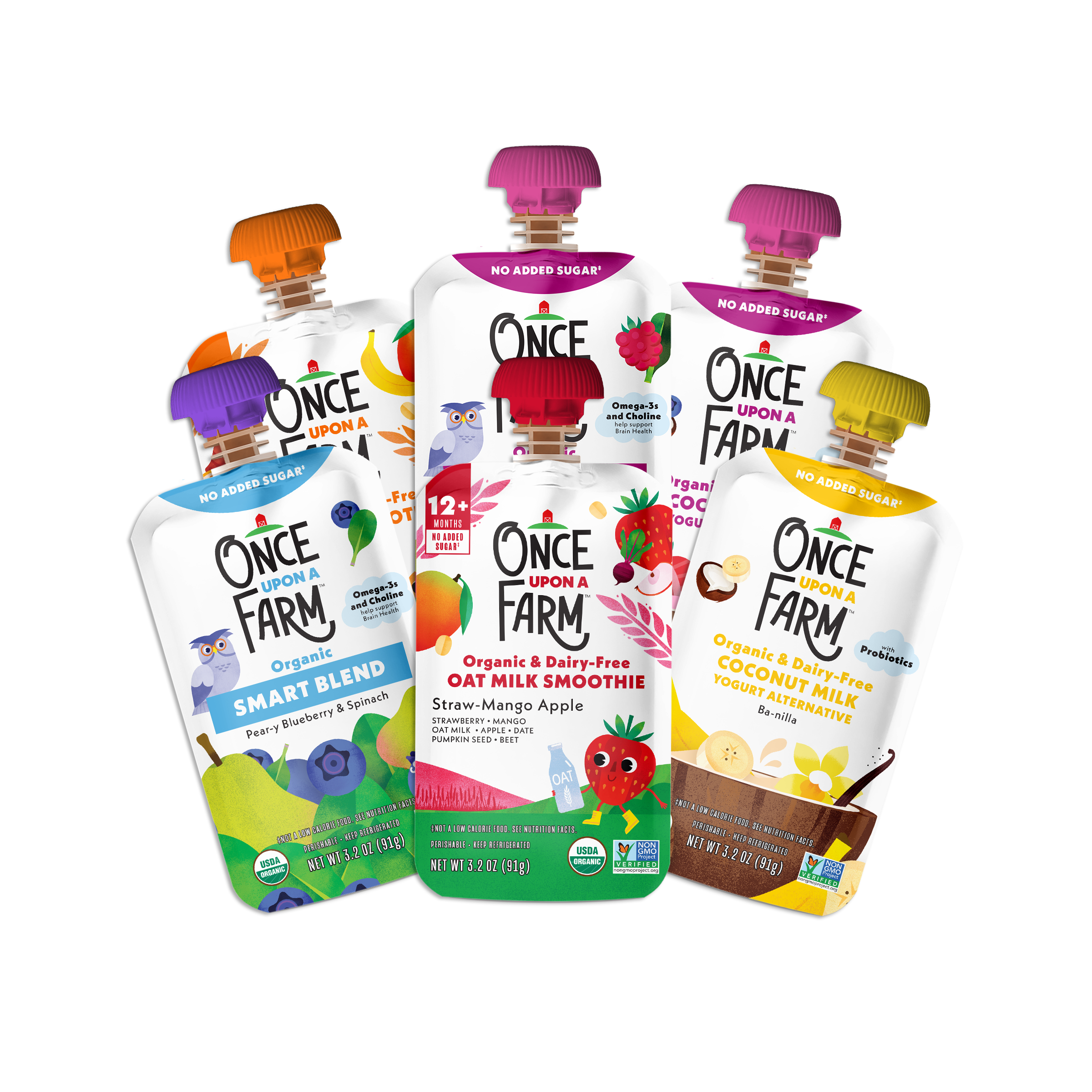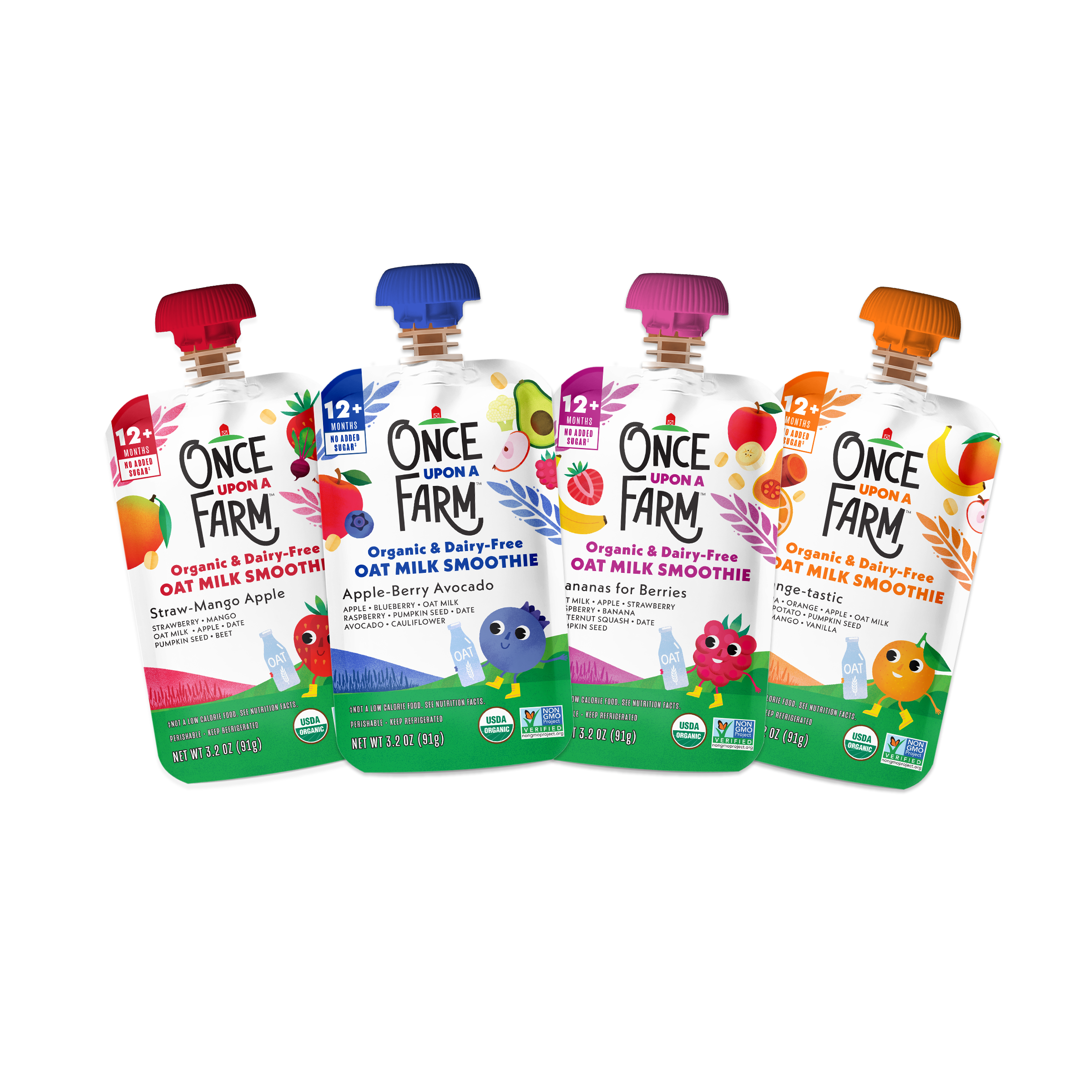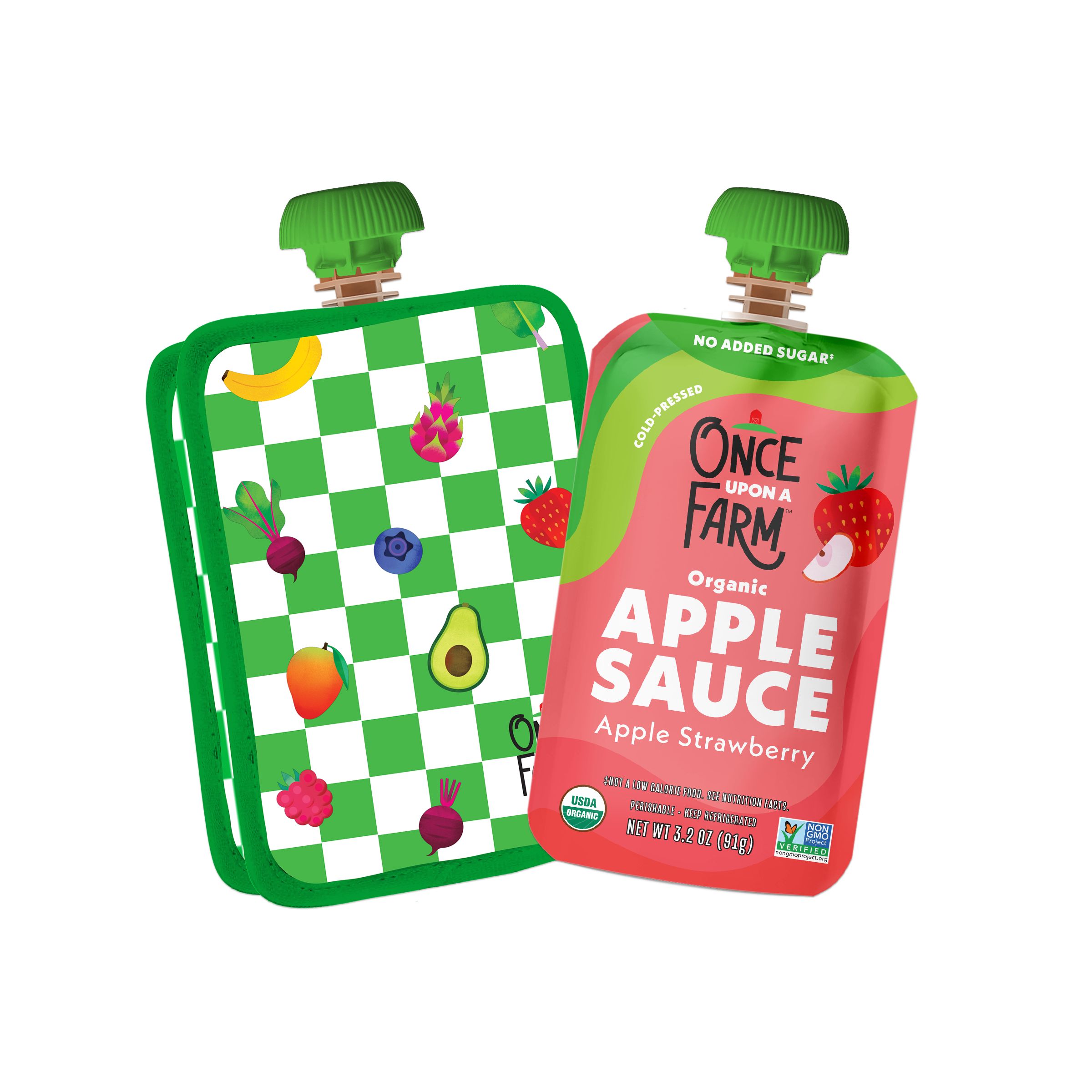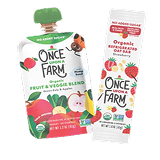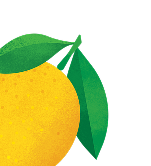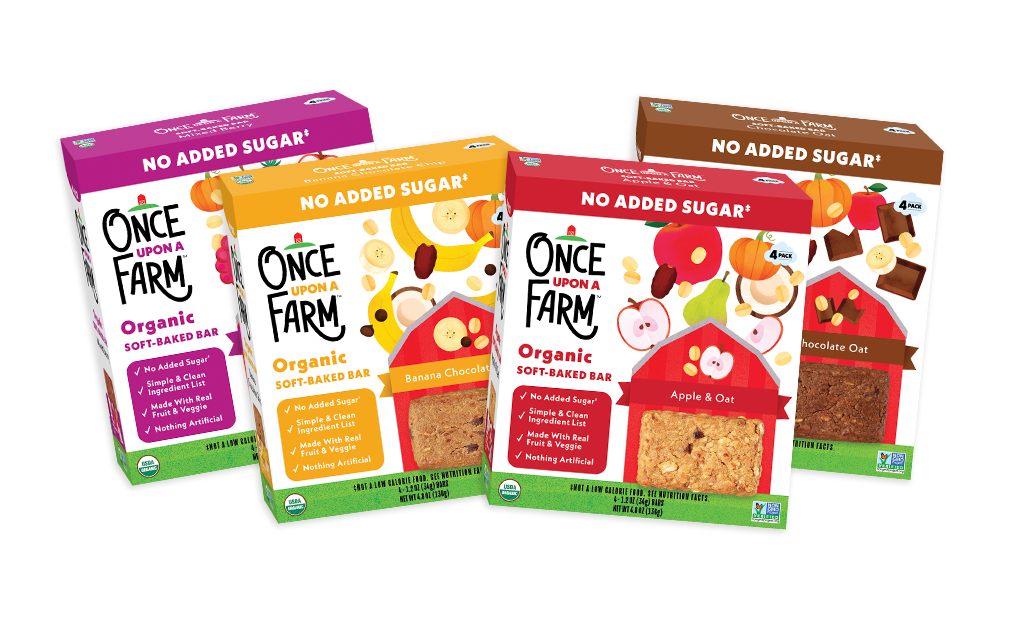Do you ever hover over the trash and recycling bins, about to toss something out and wonder, “Can I recycle this?” We want to make answering this question as easy as possible, so we’ve created this quick-reference guide to help you know exactly what to do with our packaging when you’re done with it!
How to Dispose of Once Upon a Farm Packaging
Pouches

We partner with Recyclops to offer our pouch mail-back program! Please empty pouches as much as possible and replace caps before mailing back.
These are not curbside recyclable, so if you can’t participate in our free program with Recyclops, please dispose in the trash.
Baby Food Bowls

The bowl and lid are curbside recyclable. Throw away food safety film. Replace lid on clean, empty bowl before recycling.
Frozen Meals

Our frozen Plant-Rich Meal pouches are store drop-off recyclable only. Find a location near you here.
Bar Wrappers

The wrappers for our Refrigerated Oat Bars and Tractor Wheels™ are not curbside recyclable. Please dispose of these wrappers in the trash.
Puffs Canisters

Our Fruit & Veggie Puffs canisters are widely curbside recyclable. Before tossing in your curbside bin, replace the lid and remove the perforated outer film. Please dispose of the film in the trash.
Coconut Melts Pouches

Multipack Boxes

All multipack boxes are curbside recyclable. Just flatten and place in your recycling bin.
Direct Shipping Materials

All direct shipping materials are curbside recyclable.* Just flatten and place in your recycling bin.
*Not including dry ice and ice packs
Cold Sources for Direct Shipping

Using tongs or protective gloves, place dry ice in a well-ventilated area away from children and pets. It evaporates in ~24 hours. Reuse bag for non-food use or throw away.
Gel ice packs are non-toxic and reusable! Follow directions on ice packs for proper disposal.
Common Questions about Recycling
- How clean do my recyclables need to be? Recyclables should be reasonably dry and free of food residues before going into the recycling bin. A quick rinse or swipe clean should be fine.
- How do I know what I can put in my recycling bin? What’s accepted in your bin varies by municipality, so always check with your local recycler to avoid wishcycling. Try using Earth911 to check what’s accepted in your area or to look up your recycling provider.
- What is “wishcycling”? Putting material we hope can be recycled into the recycling bin (when it actually can’t be) is known as “wishcycling.” This is harmful as it makes the recycling process less efficient and more expensive—and can damage recycling equipment or even contaminate recyclable materials.
- What does “store drop-off recyclable” mean? Certain types of recyclable flexible packaging (like our frozen meal pouches) are recyclable but can get tangled up in the equipment of most traditional recycling facilities. That's why these need to be in a separate recycling stream (like store drop-off recycling) to avoid the landfill.
- Does recycling even work? I’m skeptical... Recycling can (and does!) work, but it’s just one part of what needs to be an industry-wide approach to a complex systemic problem.
Recycle What You Can... But Don't Recycle What You Can’t
Making sure all materials end up in the correct waste streams is an important step towards circularity and sustainability. (That’s one reason why we participate in How2Recycle’s voluntary labeling program and submit every packaging spec for critical review!) While well-intentioned, wishcycling puts additional costs and challenges on recyclers, having an overall negative effect on the waste management industry and market for recycled materials. It can feel counterintuitive, but you’re ultimately supporting the recycling process when you only recycle materials you’re sure can be taken by your local recycler.
If you have specific questions or concerns, please reach out to our Care Team.

